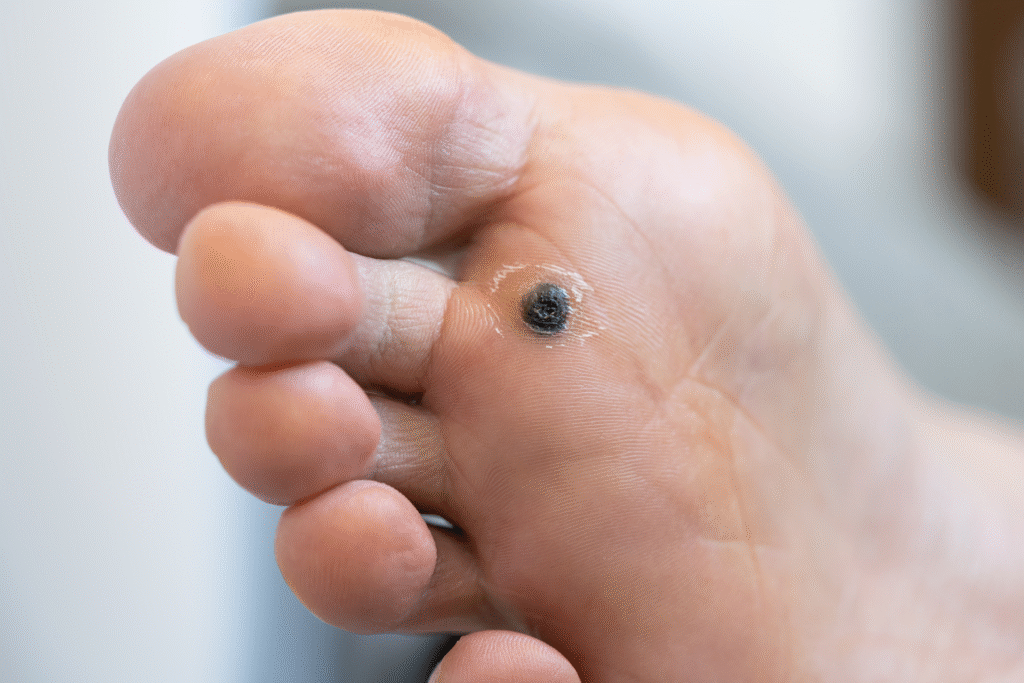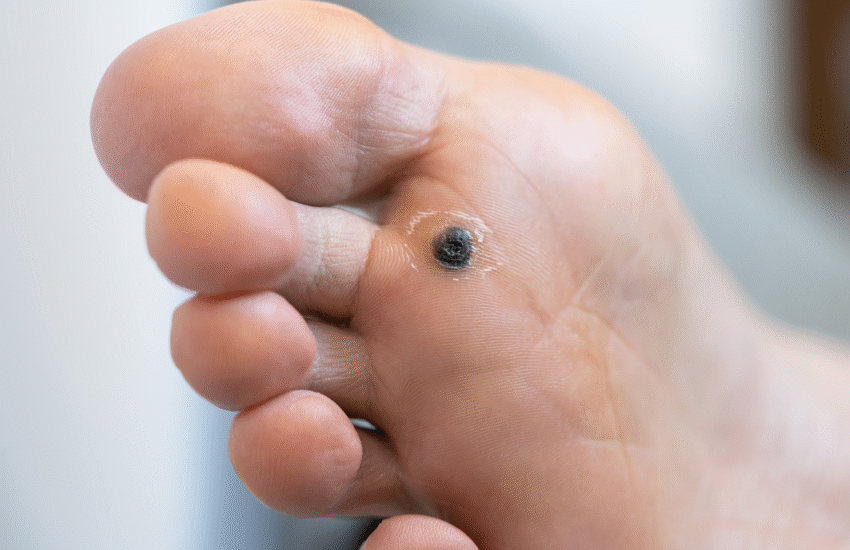
Warts on the legs are usually a type of flat wart (verruca plana) caused by the human papillomavirus (HPV). These smooth, round, and slightly raised skin-colored growths can appear in clusters and often spread through shaving, as the virus is transferred via nicks and cuts. Treatment may involve over-the-counter options like salicylic acid or professional methods such as cryotherapy or prescription creams, but it is best to see a doctor or dermatologist for persistent or spreading warts.
What are they?
- Flat warts: are smooth, flattened lumps that appear on the legs, particularly in women, and can also affect the face and hands.
- They are caused by certain strains of the human papillomavirus (HPV).
- They are skin-colored and typically occur in groups or clusters of many small warts.
How do they spread on the legs?
- Shaving: is a common way flat warts spread on the legs because the virus can be transferred by the razor to other areas of the skin.
- Nicking: the skin during shaving can also introduce the virus to new areas.
What to do about them
- Avoid picking or scratching: the warts, as this can spread the virus.
- Wash your hands: thoroughly after touching a wart.
- Consider covering: the wart with a bandage to prevent spreading.
- Do not shave: the affected area if you have flat warts, as this can worsen the spread.
- Consult a doctor or dermatologist: if the warts are spreading, are difficult to treat, or you are unsure about the cause.
Treatment Options
- Over-the-counter treatments include salicylic acid (available in gels, pads, and liquids) to help with cell turnover and removal.
- Professional treatments may include liquid nitrogen (cryotherapy), prescription medications, or injections for stubborn warts.
